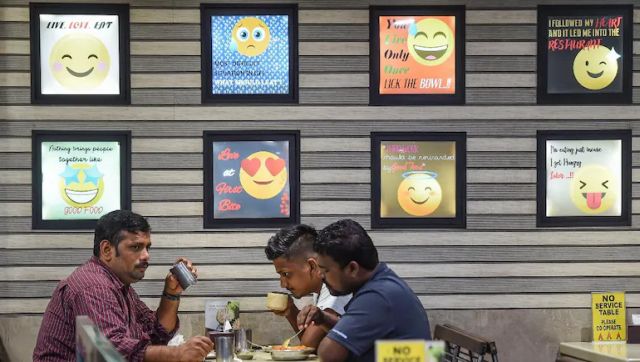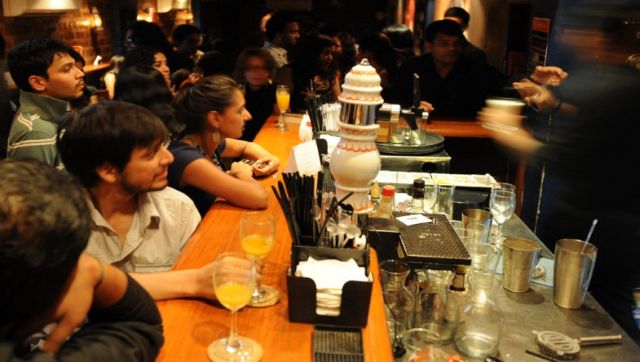The Central Consumer Protection Authority (CCPA) on Monday barred hotels and restaurants from levying service charge automatically or by default in food bills and allowed customers to file complaints in case of violation. This comes after the Union government pulled up restaurants for forcing consumers to pay a service charge after a meal. What is a service charge? A service charge is a tip or a direct transaction between the customer and the wait staff. It’s a fee collected to pay for services associated with the purchase of a primary product or service. The charges are applied at the time of the transaction. A service charge is collected by hospitality sectors and food and beverage industries as a fee for serving customers. What do the guidelines say? The CCPA has issued guidelines for preventing unfair trade practices and violation of consumer rights with regard to levying of service charge. As per the guidelines:
- No hotels or restaurants shall add service charge automatically or by default in the bill
- There should not be any collection of service charge by any other name
- No hotel or restaurant can force a consumer to pay service charge
- They have to clearly inform the consumer that service charge is voluntary, optional and at consumer’s discretion
- No restriction on entry or provision of services based on collection of service charge shall be imposed on consumers
- Further, service charge cannot be collected by adding it along with the food bill and levying GST on the total amount
- If any consumer finds that a hotel or restaurant is levying service charge in violation of the guidelines, he or she can request the concerned establishment to remove it from the bill amount
- The consumers can also lodge a complaint on the National Consumer Helpline (NCH), which works as an alternate dispute redressal mechanism at the pre-litigation level, by calling 1915 or through the NCH mobile app
- They can also file complaints with the Consumer Commission.
As per The News Minute, the CCPA, in its guidelines, said a tip or gratuity is towards hospitality received beyond basic minimum service contracted between the consumer and the hotel management, and constitutes a separate transaction between the consumer and staff of the hotel/restaurant at the consumer’s discretion. The guidelines state that a component of service is inherent in price of food and beverages offered by a restaurant or hotel. “Pricing of the product covers both the goods and services component. There is no restriction on hotels or restaurants to set the prices at which they want to offer food or beverages to consumers.” The decision to pay a tip by a consumer does not arise merely by entering the restaurant or placing an order. “Therefore, service charge cannot be added in the bill involuntarily, without allowing consumers the choice or discretion to decide whether they want to pay such charge or not,” the guidelines said. Further, any restriction of entry based on collection of service charge amounts to unfair trade practice, it added. Why are hotels under the scanner? In a letter to the National Restaurant Association of India (NRAI), Consumer Affairs Secretary Rohit Kumar Singh said that restaurants and eateries are collecting service charges from consumers by default, although it is supposed to be voluntary and at the discretion of consumers. “It has been pointed out in the letter that consumers are forced to pay service charge, often fixed at arbitrarily high rates by restaurants. Consumers are also being falsely misled on the legality of such charges and harassed by restaurants on making a request to remove such charges from the bill amount,” said a statement issued by the Department of Consumer Affairs on Monday. “Since this issue impacts consumers at large on a daily basis and has significant ramification on the rights of consumers, the department construed it necessary to examine it with closer scrutiny and detail,” it said. The letter also pointed out the 2017 guidelines issued by the consumer affairs department. [caption id=“attachment_10711991” align=“alignnone” width=“640”]  The Centre has pulled up restaurants and called for a meeting on 2 June to discuss the issue of service charge. Image for representational purposes/PTI[/caption] What do the 2017 guidelines state? The Department of Consumer Affairs issued guidelines in April 2017, clarifying that paying a service charge or tip to staff, and how much to tip, is left to the discretion of customers. Hotels and restaurants cannot compulsorily collect the amount from them. The department, which comes under the Ministry of Consumer Affairs, Food, and Distribution, had chalked the guidelines after noticing that some hotels and restaurants are charging tips from customers “without their express consent in the name of service charges”; some are restraining consumers from entering their premises if they do not agree to pay a service charge, and customers are paying tips to waiters in addition to service charge under the mistaken impression that it is part of the taxes. “Tips or gratuity paid by a customer is towards hospitality received by him/her beyond the basic minimum service already contracted between him/her and the hotel management. It is a separate transaction between the customer and the staff of the hotel or restaurant, which is entered into, at the customer’s discretion,” the guidelines noted. Charging for anything other than the prices mentioned on the menu card and/or restricting the customer’s entry or forcing him/her to pay the service charge as a pre-condition to placing the order would amount to unfair trade practice. In such cases, the customer can approach a Consumer Disputes Redressal Commission/Forum and is entitled to be heard and redressed. Why do eateries continue to default? The guidelines approved by the Union government are advisory in nature. In the absence of specific legislation, it cannot take any stringent action or impose fines for the violation, according to a report in The News Minute. Even the Consumer Protection Act, 2019, does not mention anything about a service charge or tip. Restaurant owners also maintain that service charge is optional and is waived off if diners want. When a patron asks the charge is waived off but such requests are few, a restaurateur told The Times of India. He added that the service charge is 10 per cent of the bill and the money goes to the staff. With inputs from agencies Read all the Latest News , Trending News , Cricket News , Bollywood News , India News and Entertainment News here. Follow us on Facebook, Twitter and Instagram.


)

)
)
)
)
)
)
)
)



